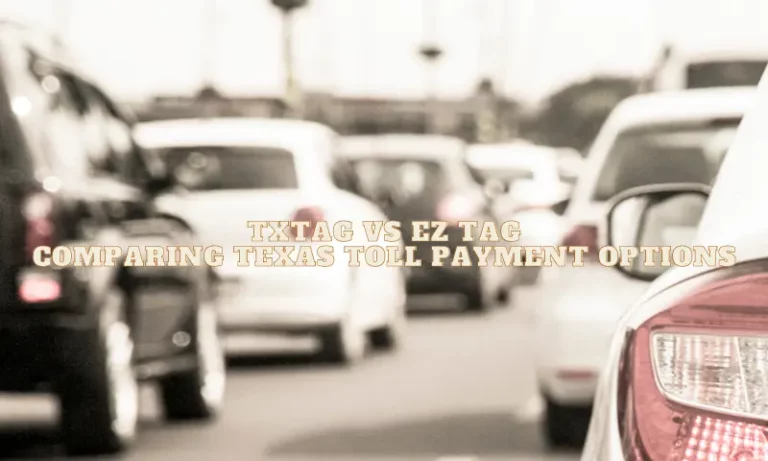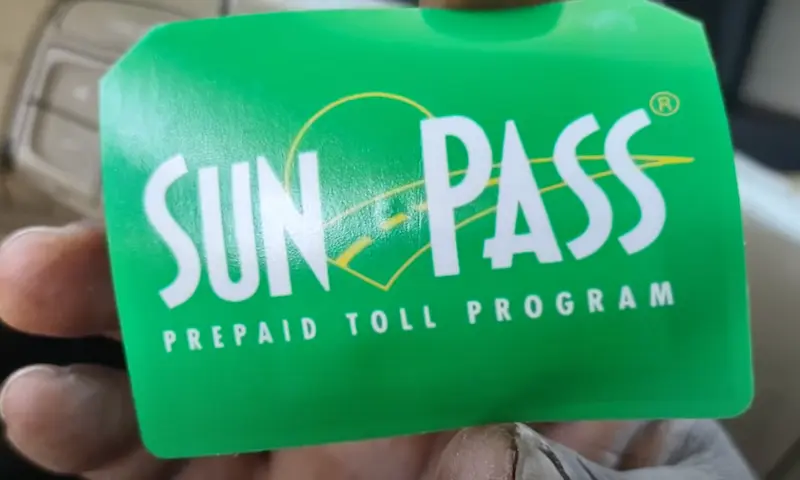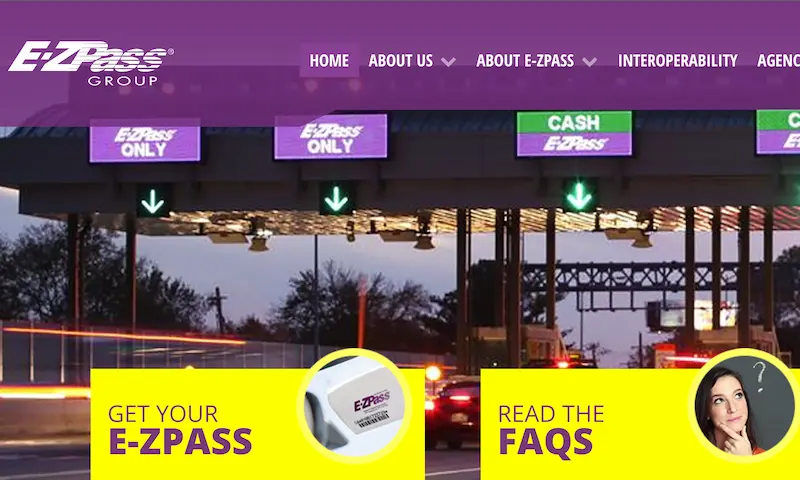Driving Texas toll roads shouldn’t be complicated. Yet many drivers find themselves confused when choosing between TxTag and EZ TAG. With the recent changes in 2025, the decision might be easier than you think. Let’s break down everything you need to know about these toll collection systems to help you make the best choice for your commute.
The 2025 TxTag and EZ TAG Consolidation: What Changed?
Big news if you haven’t heard – HCTRA (Harris County Toll Road Authority) now manages both EZ TAG and TxTag systems. This transition, completed in January 2025, created a major shift in how toll collection works across Texas.
The change came about as TxDOT decided to improve customer support and create more consistent billing practices. While HCTRA now handles the operations, TxDOT still owns the roads and toll equipment. And don’t worry – if you have a TxTag, it still works just fine.
Key points about this transition:
- HCTRA now collects tolls on TxDOT-owned roads including SH 130, SH 45N, SH 45SE, Mopac/Loop 1, SH 99, and SH 249
- Existing TxTags remain functional on all compatible toll roads
- Account management now happens through HCTRA’s website
- New toll tag users receive EZ TAGs instead of TxTags
- TxTag users needing replacements will get EZ TAGs
Historical Differences Between TxTag and EZ TAG
Before the consolidation, these two systems had distinct origins and purposes:
| Feature | EZ TAG | TxTag |
|---|---|---|
| Established by | Harris County Toll Road Authority | Texas Department of Transportation |
| Primary coverage | Greater Houston area | Statewide approach |
| Key roads served | Hardy Toll Road, Sam Houston Tollway | Grand Parkway, Central Texas Turnpike System |
| Geographic focus | Southeastern Texas | Multiple regions across Texas |
EZ TAG was designed specifically for Houston-area toll roads, while TxTag aimed to create a more unified statewide system. This division meant drivers often needed different accounts depending on where they drove most frequently.
Physical Differences and Cost Structure
If you’ve seen both tags on car windshields, you might’ve noticed some differences:
The TxTag stickers were smaller and less obtrusive – something many drivers appreciated for aesthetic reasons. EZ TAGs are slightly more noticeable but still designed to blend into your windshield.
Cost-wise, both systems avoided monthly fees (nobody likes those anyway). Instead, they draw funds from your account based on actual toll road usage. However, EZ TAG historically offered something special:
EZ TAG advantage: 10% discount on HCTRA roads – a nice perk for Houston commuters that adds up over time.
Account replenishment worked similarly for both systems. For example, EZ TAG typically topped up accounts when balances hit around $15, bringing them back to approximately $40. This automatic system ensures you’re never caught without toll funds.
Geographical Reach and Interoperability
If you travel beyond Texas, this section matters to you. Both systems expanded their reach over time:
By 2003, TxTag and EZ TAG worked interchangeably on Texas toll roads. Then TxTag went further, establishing compatibility with:
- Kansas’s K-TAG (2017)
- Oklahoma’s PikePass (2019)
- Colorado’s ExpressToll (June 2024)
This interstate interoperability was a significant advantage for regional travelers who didn’t want multiple toll tags cluttering their windshield.
With the consolidation, EZ TAG now offers the same interoperability benefits, making it a solid choice for cross-state travelers.
Customer Service Experience: A Critical Difference
Before the merger, the reputation of each system’s customer service showed stark contrasts:
EZ TAG earned praise for responsive service and efficient problem-solving. Many users found HCTRA’s more localized focus allowed for better attention to individual issues.
TxTag faced significant challenges in this area. A system upgrade that temporarily took the service offline resulted in numerous complaints about billing errors and wrongful charges. In fact, TxTag had to refund $5 million in toll overcharges due to these system problems.
Many users also found the TxTag website difficult to navigate compared to HCTRA’s more user-friendly interface – a crucial factor when you need to check balances or update vehicle information quickly.
Account Management After the Consolidation
With HCTRA now managing both systems, here’s what you need to know about account management:
- Existing TxTag users can access their accounts through HCTRA’s website
- Account information (address, vehicle details, payment methods) transferred during the transition
- Inactive accounts (unused for over 12 months) were closed with balances refunded
- HCTRA’s violation processing policies now apply to all roads under its management
This consolidation aims to provide more consistent service across all toll roads, addressing many of the reliability issues that plagued TxTag in the past.
Alternative Systems: TollTag and Other Options
Though TxTag and EZ TAG have consolidated, other options still exist for Texas drivers:
The North Texas Tollway Authority (NTTA) continues to operate its TollTag system, primarily serving the Dallas-Fort Worth metropolitan area. TollTag works on all the same roads as EZ TAG and extends to Oklahoma and Missouri turnpikes.
Some drivers report positive experiences with NTTA’s customer service, making it worth considering if you frequently travel in North Texas.
For occasional toll users, you might wonder if you need a tag at all. Without a tag, toll roads use license plate recognition and mail invoices – but this typically costs more per toll and can include additional administrative fees.
Making Your Decision: Which Tag Is Best For You?
With the 2025 consolidation, your decision is simpler than before. Here’s a straightforward guide based on your driving patterns:
If you mainly drive in the Houston area: EZ TAG is the natural choice with its 10% discount on HCTRA roads and local customer service centers.
If you frequently travel throughout Texas: Either EZ TAG or TollTag will work well. Consider which service centers are closest to you – HCTRA centers in Houston (and now Austin) or NTTA centers in Dallas-Fort Worth.
If you regularly drive to neighboring states: Both EZ TAG and TollTag offer interstate interoperability. EZ TAG now provides the same cross-state benefits that TxTag established.
If you’re an occasional toll road user: Still worth getting a tag since there’s no maintenance fee. This avoids the higher costs of mail invoicing.
How to Get Started With EZ TAG
Ready to get an EZ TAG? The process is straightforward:
- Visit the HCTRA website
- Create an account with your vehicle and payment information
- Choose how many tags you need (one per vehicle)
- Set up automatic replenishment with a credit card
- Your tag will arrive by mail within 7-10 days
Initial account funding typically requires a credit card payment of $40 per tag to establish your balance. The tag itself costs around $15, which is deducted from your initial balance.
Understanding Toll Violations and Fees
With the consolidation, HCTRA’s policies for unpaid tolls now apply across all managed roads. Here’s what happens if you miss a toll:
- First, the system attempts to match your license plate to an existing account
- If no match is found, you’ll receive a toll violation invoice by mail
- A $10 administrative fee applies to each violation invoice
- Multiple unpaid violations can lead to additional fees and potential vehicle registration holds
The best way to avoid these fees? Maintain sufficient funds in your toll tag account and ensure your vehicle information stays current.
The Future of Toll Collection in Texas
As the consolidation continues to unfold throughout 2025, expect further standardization of toll practices across Texas. Eventually, we’ll likely see a more unified toll collection brand as TxTag is gradually phased out in favor of EZ TAG.
This shift represents a significant evolution in how Texas handles toll collection, potentially bringing improved customer service and system reliability to all toll road users.
For drivers, the good news is that the tags themselves will continue to work seamlessly as the systems integrate further. The physical differences between TxTag and EZ TAG stickers will persist for some time as existing tags remain in use.
The bottom line: with HCTRA’s management now extending to former TxTag roads, most Texas drivers will find EZ TAG offers the most comprehensive coverage and benefits for their toll road needs.
















